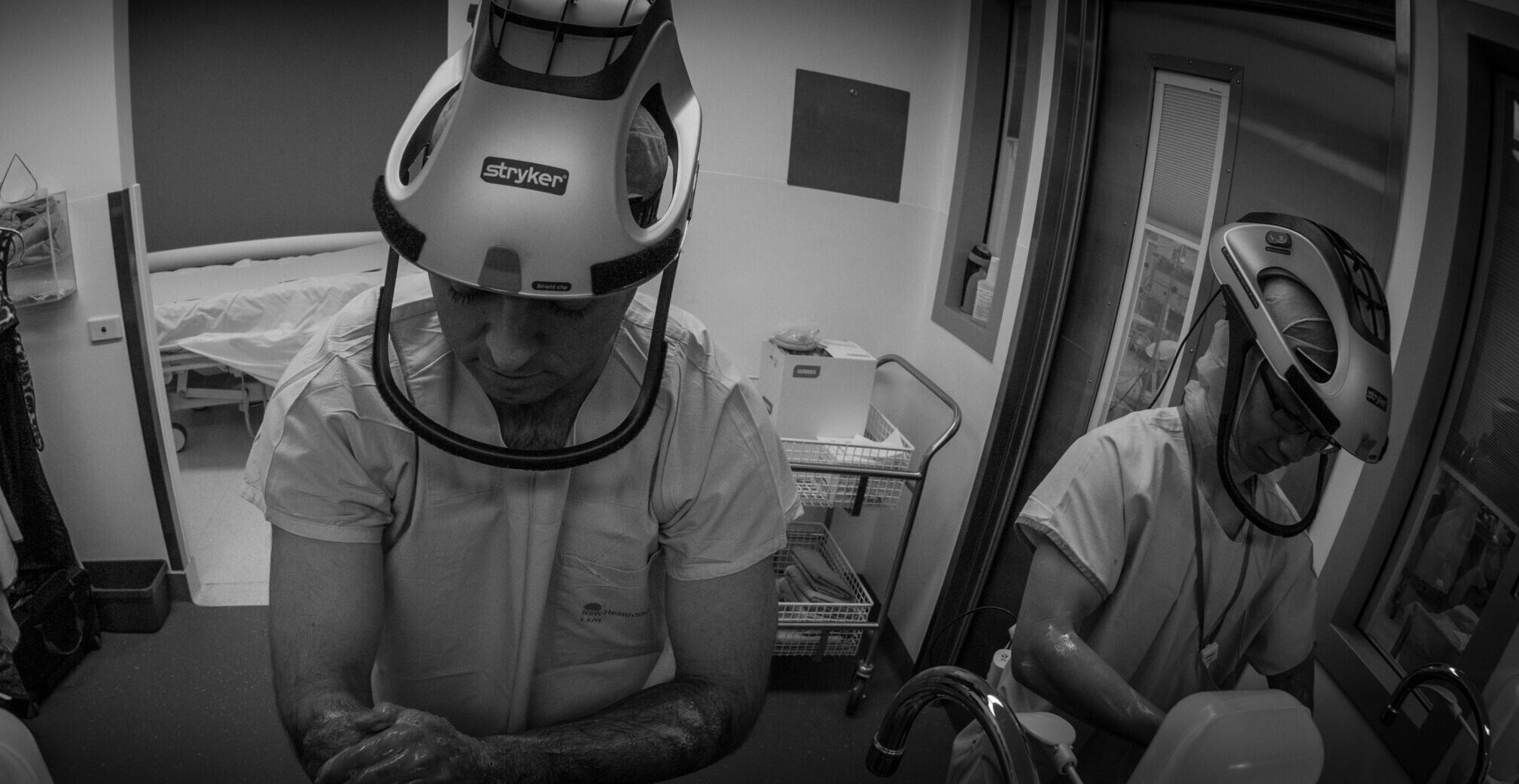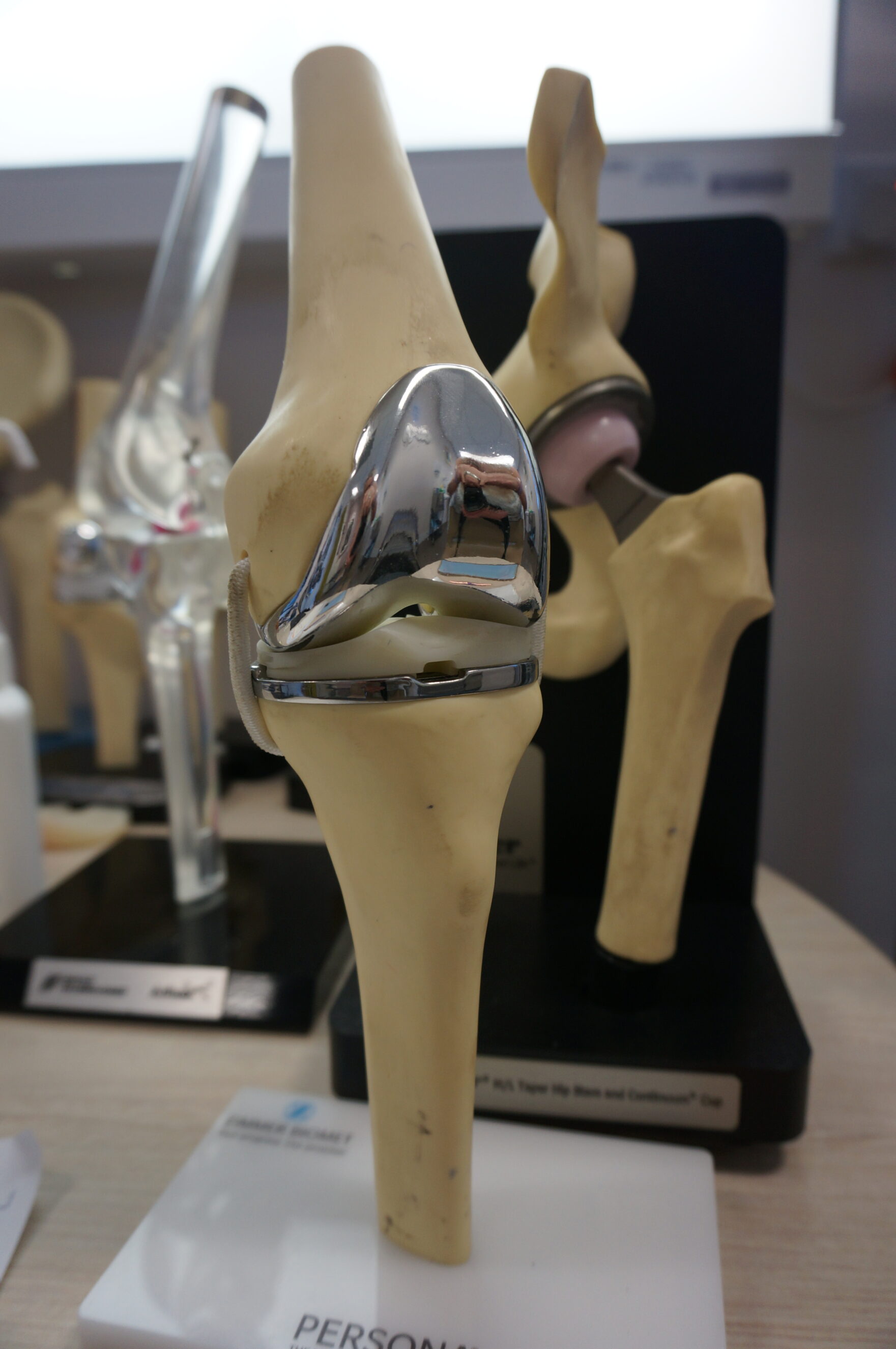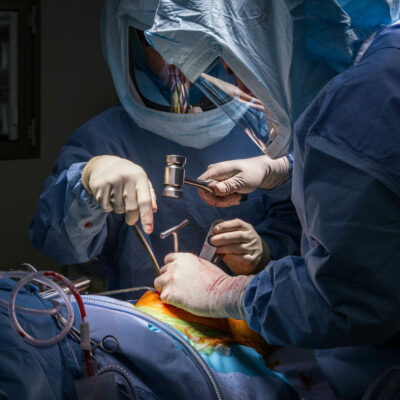Revision Total Knee Replacement (TKR) surgery is a procedure performed to replace a failing or failed primary knee replacement implant.

Our Revision Knee Replacement Specialist
Dr Peter Kilby
Orthopaedic Surgeon
FRACS FAOrthA Appointments: 02 6331 8354 More About Dr Kilby
Why is Revision Total Knee Replacement (TKR) necessary?
All forms of knee replacement surgery have a finite lifespan. There is an 85% likelihood that a total knee replacement will last for 15 years, while the probability for a unicompartmental (partial) knee replacement ranges from 60 to 80%.

There are many different reasons why a knee replacement may wear out or ‘fail’. Some of the reasons include:
Arthritis: A unicompartmental knee replacement may be needed due to the progression of arthritis in other areas of the knee causing pain.
Wear and Tear: Over time, the artificial components of a knee replacement can wear out, leading to loosening and pain.
Infection: Infections can compromise the implant and surrounding tissue, necessitating revision.
Instability: If the knee becomes loose or unstable due to ligament damage or implant issues, revision surgery may be required.
Pain: Pain that has not been relieved by the unicompartmental knee device.
Osteolysis: This refers to bone loss around the implant, which can result in the formation of cavities and compromise the stability of the implant, leading to loosening and potential failure.
Mechanical Failure: Breakage or malfunction of the implant components requires immediate attention.
Types of Revision TKR Surgeries?
The types of surgeries include:
Component Exchange: Replacing one or more components of the existing implant.
Complete Revision: Removal and replacement of all components of the original knee replacement.
Complex Revision: Involves addressing significant bone loss, severe instability, or extensive soft tissue damage, often requiring specialised implants and techniques.
Why Have Revision Total Knee Replacement Surgery?
The primary goals of revision TKR include:
- Alleviating pain caused by the failed knee replacement.
- Restoring stability and function to the knee joint.
- Correcting any misalignment or instability issues.
- Treating infection and promoting healthy bone and tissue around the implant.
Revision TKR can vary from minor adjustments to complete replacement of the implant components. Understanding the reasons for surgery, the types available, and the expected recovery process is crucial for patients facing this procedure.
Before Surgery

Preparation is key to a successful outcome
Prior to the surgery, you will require normal investigations that were needed for the initial total knee replacement surgery (blood tests, ECG and other x-rays), as well as specific tests to determine the cause of knee replacement failure. This may include:
- blood tests to rule out infection,
- a possibly a knee aspiration procedure: withdrawing fluid from the knee joint,
- other infections tests,
- specialised imaging such as a CT scan or MRI scan may occasionally be needed before surgery.
Your anaesthetist will also conduct a consultation to discuss the most appropriate type of anaesthesia for you, along with alternative options. Furthermore, they will outline the most effective pain relief strategies for after the operation.
Just like the initial surgery, there will be other important preparations that can help with your recovery and pain management. These are:
- Home Preparation: Ensure your living space is safe and conducive to recovery, with items you frequently use within easy reach.
- Support System: Arrange for help during the initial recovery phase, as mobility will be limited.
- Physical Preparation: Engage in pre-operative exercises if recommended by your healthcare provider to strengthen the muscles around the knee.
Revision TKR generally takes longer than primary knee replacement due to its complexity.
- The surgery can last from 2 to 4 hours, depending on the extent of revision required.
- Extensive pre-operative planning and specialised equipment may be necessary.
After Surgery
Recovery from revision TKR can be more challenging and prolonged than the initial replacement.
This can include:
- Hospital Stay: Patients may spend several days in the hospital post-surgery for monitoring and initial recovery.
- Immediate Postoperative Period: The first few weeks involve managing pain, reducing swelling, and beginning gentle knee exercises.
- Full Recovery: Complete recovery and return to everyday activities can take from 6 months to a year. A structured physical therapy program is crucial for regaining strength and mobility.
- Long-Term Outcomes: Regular follow-up with the orthopaedic surgeon and adherence to a rehabilitation program are essential for maintaining the results of the revision surgery.
